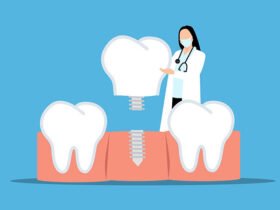Preparing for a medical appointment can make a world of difference in your healthcare experience. Did you know that nearly 50% of patients leave their appointments without fully understanding their doctor’s instructions? Taking the time to prepare can help ensure you get the most out of your visit. In this article, we’ll cover several practical steps you can take, including drafting questions, understanding what to expect, and managing your medication. You’ll feel more confident and empowered during your appointment by being organized and knowing what to do beforehand.
Understanding the Appointment
Not all medical appointments are the same, and knowing what to expect helps you prepare better. Routine check-ups focus on overall wellness—blood pressure, cholesterol, weight, and preventive screenings. Specialist visits often focus on a particular issue, like joint pain, skin changes, or heart problems. Follow-up appointments usually review past treatments, test results, or medication progress. Some appointments may also be virtual.
It’s helpful to understand who you’re seeing. Take a few minutes to check their area of expertise, if they speak your preferred language, and what credentials they hold, including whether they’ve completed requisite healthcare courses like RN to NP programs online. Knowing this helps you feel more comfortable and builds trust immediately.
Pre-Appointment Preparation
Before your visit, take time to jot down your main concerns or symptoms. Note when they started, how often they happen, and what makes them better or worse. If you’re taking any medications or supplements, list them, including dosages. It also helps to write down any questions you want to ask—don’t rely on memory alone. Have your medical history handy, especially if you’re seeing a new doctor. Include any major illnesses, surgeries, allergies, and family health history.
Lastly, bring all necessary documents, like your insurance card, a photo ID, and past test results or referral letters. Being prepared sets the stage for a more productive and focused appointment.
Day of the Appointment
Planning your travel carefully on the day of your appointment is important to allow enough time for unexpected delays, like traffic or parking issues. Aim to arrive at least 15 minutes early in case you need to fill out paperwork.
If it’s a virtual appointment, test your computer’s video and sound, and find a quiet space before the appointment.
Don’t forget your list of medications, including over-the-counter drugs and herbal supplements—these can affect treatment decisions.
Dress in comfortable clothes that allow easy access to areas that might need examining. A small notebook or your phone’s notes app can come in handy to jot things down. Staying calm and prepared sets the tone for a productive, stress-free appointment. Bring some water in case the clinic doesn’t provide any.
During the Appointment
This is your time—make the most of it by being open and honest with your provider. Don’t hold back information, even if it feels awkward. It’s better to over-share than leave out something important. Ask for clarification if you don’t understand a medical term or what a treatment involves. Your provider wants you to feel informed and comfortable.
Bring a friend or family member if you’re nervous or tend to forget details. Take notes during the visit or ask the provider to write down important instructions. This helps eliminate confusion later on and ensures you leave the appointment with all the information you need.
If you’re given handouts or a summary, keep them in a safe spot. Being active in your appointment improves communication and helps you walk away with a clear understanding of your care.
Post-Appointment Follow-Up
Once the appointment is over, take a few minutes to review your notes or any documents you received. Make sure you understand the next steps—this could include starting a new medication, getting tests done, or following a treatment plan. If anything’s unclear, don’t hesitate to call the clinic for clarification. It’s better to ask than guess. If a follow-up appointment is needed, try to schedule it before you leave the office, so it doesn’t slip your mind later. Set a reminder on your phone or calendar. If you’re waiting on test results, ask how and when you’ll get them. Staying engaged after the visit ensures that you follow through on your health plan and helps your provider track your progress effectively.
In summary, planning can turn a rushed, confusing appointment into a clear, helpful conversation about your health. By preparing ahead, speaking up, and following through, you play a decisive role in your own care. It’s important to make the most of every medical visit and feel more confident managing your health.










